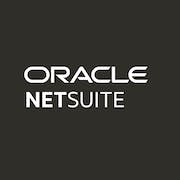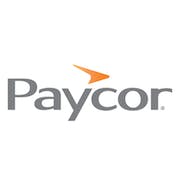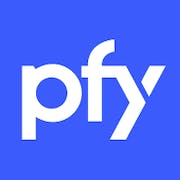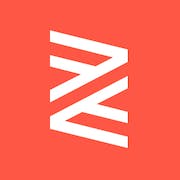Onboarding new employees can be a daunting task. From paperwork to training, HR professionals have a lot on their plates when it comes to welcoming new team members. Enter onboarding software. This game-changing technology has the power to streamline the entire process, saving businesses time and money while ensuring a seamless experience for new hires. But with so many options on the market, it can be overwhelming for companies to choose the right software for their needs. That's why we've created this comprehensive guide to help you navigate the world of onboarding software and make an informed decision that will benefit your business for years to come.
What is Onboarding Software
Onboarding is a critical process for new employees, and having the right software can make all the difference. Onboarding software is designed to streamline the onboarding process by centralizing information, creating a clear workflow, and monitoring progress. In this guide, we will discuss onboarding software, its common use cases, and the types of companies that use it. Onboarding software is an automated platform that helps companies manage the onboarding process for new hires. With onboarding software, companies can digitize HR paperwork, simplify the orientation process, and track employee progress through a customized workflow. Common Use Cases of Onboarding Software: - Automate HR paperwork: Businesses can use onboarding software to create and manage important HR forms and documents, such as W-4 forms, employee handbooks, and confidentiality agreements. - Improve orientation process: Keep employees engaged by providing a streamlined onboarding experience and reducing the administrative burden placed on HR. Orientation sessions can be conducted using video, quizzes, or interactive learning modules. - Track employee progress: Employers can track the progress of new hires, ensure they have completed all necessary tasks, and provide feedback along the way. - Enhance corporate culture: Onboarding software can help to promote brand identity and company culture by providing new hires with interactive content and information about the company history, values and mission statement. Types of Companies that use Onboarding Software: - Fast-growing startups - Large enterprises with remote workers - Organizations with a high volume of new hires - Companies looking to improve their retention rates - Businesses seeking to improve employee engagement and satisfaction In conclusion, onboarding software is a valuable tool for companies looking to simplify and streamline the onboarding process. It can help businesses to automate HR paperwork, enhance employee engagement, track employee progress, and promote corporate culture. Regardless of the type of company or industry, adopting onboarding software can lead to a smoother onboarding process and ultimately a more satisfied workforce.
Benefits of Onboarding Software
Onboarding software is a crucial tool for businesses of all sizes. Efficient onboarding is crucial to ensure that new employees are able to settle into their roles quickly and become productive members of the team as soon as possible. It is important to note that simply getting an employee to sign on to your company does not make them magically productive. Proper onboarding is necessary for all new hires. Here are the key benefits of onboarding software: - Enhanced productivity: Onboarding software helps new employees to understand their roles better, become familiar with company culture, and quickly get up to speed with the expectations and processes of their new job. This promotes productivity from day one. - Better employee engagement: A well-planned onboarding software helps to increase engagement with new hires by providing them with the tools and resources they need to become successful in their role. - Reduced time to productivity: By providing structured training and development resources, onboarding software creates a fast-track process for new hires to gain the knowledge and skills required to be productive in their roles. - Consistency: An onboarding software aids in ensuring that all new hires receive the same level of training and coaching. This consistency ensures that every employee is able to perform at the same level, regardless of background or experience. - Lower turnover rates: Effective onboarding through software can lead to better employee retention by creating a better understanding of the company's values, culture, and expectations. This can lead to increased job satisfaction and a more committed workforce in the long term. Overall, an onboarding software is a vital tool for businesses that want to attract and retain top talent and, at the same time, ensure that new employees are able to contribute to the organization in the shortest amount of time possible.
Features of Onboarding Software
Onboarding software is a valuable asset for companies of all sizes looking to streamline the hiring process. Here are 10 common features that onboarding software offers: 1. Digital Document Signing: Onboarding software allows for the uploading and signing of important documents, streamlining the process for both employees and employers. 2. Customizable Forms and Workflows: The ability to create and customize forms and workflows helps companies to tailor their onboarding process to their specific needs. 3. Mobile Optimization: Onboarding software allows new employees to complete necessary forms and tasks from any device, anytime, anywhere. 4. Employee Task Management: Task management features help employers keep track of new employee progress and ensure that tasks are being completed efficiently. 5. Compliance Management: Onboarding software assists in ensuring that all compliance requirements are met during the hiring process. 6. Personalized Portals: Personalized portals give employees access to all necessary onboarding materials in one easy-to-use location. 7. Reporting and Analytics: With reporting and analytics, employers can track onboarding progress and identify areas for improvement. 8. Integrations: Many onboarding software options integrate with other HR systems, increasing efficiency and reducing errors. 9. Communication Tools: Communication tools, such as messaging or chat, allow for easy communication between new employees and HR staff. 10. Benefits Enrollment: Some onboarding software options allow for new employees to enroll in company benefits during the onboarding process, simplifying the enrollment process. With these features, onboarding software can help companies save time and money, while ensuring a thorough and streamlined onboarding process for new employees.
Considerations of Onboarding Software
Onboarding new employees can be a time-consuming and overwhelming process. That's where onboarding software comes in - it can help streamline the process and make it more efficient for both the employer and the new hire. However, with so many options available, choosing the right onboarding software for your business can be a daunting task. In this article, we'll go over some important factors to consider when making your purchase. 1. Features: Make sure to assess the features that the onboarding software offers. Some common features include task management, document management, and employee self-service. Consider what features would be most helpful for your specific business needs. 2. Ease of use: The onboarding software should be easy to use and navigate for both the employer and the new hire. Look for software that has a clean and user-friendly interface and that doesn't require extensive training. 3. Integration: Does the onboarding software integrate with your existing HR software or other systems? Having seamless integration can help ensure a smoother onboarding process. 4. Customization: Your business has its unique needs, and you'll want onboarding software that can be customized to fit those needs. Look for software that allows for tailored workflows, branding, and any other customizations that will make the process more streamlined and aligned with your business goals. 5. Security: The onboarding process involves sensitive employee information, so ensuring that the software has robust security measures in place is crucial. Look for software that has data encryption, secure storage, and authentication protocols. 6. Technical support: Like any software, issues and questions may arise, so having access to technical support is important. Look for software that offers strong technical support, including training options, online documentation, and responsive customer service. By considering these factors, you can make a well-informed decision on which onboarding software is the best fit for your business. With the right software in place, your onboarding process can become more streamlined, efficient, and enjoyable for both new employees and employers.
Software Trends for Onboarding Software
Onboarding new employees can be a challenging and time-consuming process, but with the right software, companies can streamline the process to make it more efficient and effective. Here are some of the biggest onboarding software trends in 2023 and beyond: 1. Mobile-first onboarding: With increasingly mobile workforces, mobile-first onboarding solutions will become more popular. This means that onboarding software will be designed specifically for mobile devices, with user interfaces optimized for smaller screens and touch-based interactions. 2. Artificial intelligence (AI): AI-powered onboarding software will become more common, with algorithms that can personalize onboarding experiences based on employee data and preferences. This will make the onboarding experience more engaging and interactive, leading to better retention rates and job satisfaction. 3. Video-based onboarding: Video is becoming an increasingly popular medium for onboarding, as it allows companies to personalize their messages and deliver them in a more engaging way. Video-based onboarding solutions will become more common, with personalized videos that welcome new employees and provide them with onboarding information. 4. Gamification: Gamification is the process of using game mechanics to make non-game activities more engaging. Onboarding software will begin to incorporate gamification elements, such as leaderboards, challenges, and rewards, to make the onboarding experience more fun and engaging. 5. Virtual Reality (VR): VR technology is becoming more common in the workplace, and onboarding is no exception. VR-based onboarding solutions will become more popular, allowing new employees to explore their new workplace, learn about their role, and interact with colleagues in a virtual environment. By adopting these trends in their onboarding software, companies can make the onboarding process more engaging, efficient, and effective. This will not only improve employee retention rates and job satisfaction, but can also lead to better overall business outcomes, such as increased productivity and profitability.








